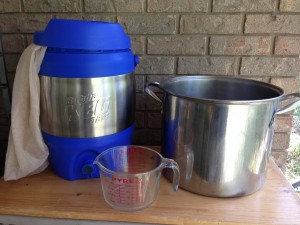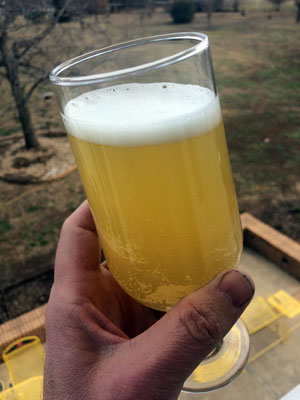Sweet sorghum syrup is tasty on pancakes, and it’s also a tasty addition to a Belgian-style ale. Its flavor is much like molasses. However, how it’s made is more like maple syrup.
Every fall, participants in the Cane Hill Harvest Festival in Cane Hill, Arkansas, take sorghum cane grown on the grounds of historic Cane Hill College and turn it into dark, sticky deliciousness. The locals just call it “sorghum,” but sorghum cane is different from sorghum grain, which is used to brew gluten-free beers. And although some people call the end product “sorghum molasses,” it’s not really molasses. Molasses is a by-product of turning sugar cane and sugar beets into granulated sugar. [Read more…]






Recent Comments